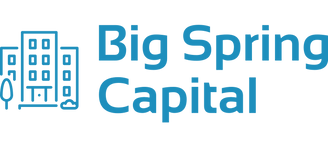I recently had an interesting realization during a workout in the freezing cold.
I just wrapped up a mental toughness challenge called 75 Hard – two 45-minute workouts each day (one outside regardless of weather), plus a bunch of other daily tasks, all for 75 straight days. And let me tell you, there's nothing like a long outdoor workout to get your mind wandering into some deep territory.
A couple weeks ago, while grinding through my outdoor session on a particularly cold Tennessee day, I found myself thinking about the word "freedom" – and specifically what it means in the context of financial independence.
But here's the thing: ask 10 different people what financial freedom means, and you'll get 10 different answers.
For me though, it all comes down to one word: optionality.
The Power of Choice
True wealth isn't measured in dollars – it's measured in a variety of ways, one of those being options.
How many genuine choices do you have in your daily life? What's your ability to say "no" to things that don't align with your values or goals?
The conventional narrative often paints financial freedom as sipping margaritas on a beach somewhere, having forever escaped the 9-5 grind. But I think that misses the mark entirely.
Freedom isn't about the absence of work. It's about the power to choose your work.
Let's be honest: most of us aren't wired to sit on a beach all day. We're at our best when we're serving others and creating value. The key is having the ability to choose how we do that.
The High Income Trap
It’s common to think that a high income automatically creates optionality. But that isn’t necessarily the case.
Think about it: if you're making $500K a year but it's your family's only income source and your expenses are sky-high, you've actually got very little optionality.
It's a single point of failure. One layoff, one market downturn, one unexpected event, and the whole house of cards can come crashing down.
This same trap catches a lot of business owners too. You have to ask yourself: do you own a business, or are you the business? (Read Rich Dad’s Cashflow Quadrant by Robert Kiyosaki for a deeper dive into this concept.)
If your income requires your constant attention and effort – whether from a high-paying W-2 job or your own business – you don't have as much optionality as you think.
You've just created a different type of dependency. The moment you step away or something happens to you, the income stops.
True Financial Freedom
So what creates real optionality?
In my experience, it comes from building multiple streams of passive investment income that:
Produce consistent cash flow
Come from uncorrelated sources
Don't require your active time or energy
Can survive without your direct involvement
This is why I'm such a big advocate for passive real estate investments like syndications. When structured properly, they can provide:
Regular cash flow that doesn’t require your time or effort
Appreciation potential that builds long-term equity
Diversification across markets and asset types
Tax advantages that preserve wealth
Time for Reflection
As we kick off 2025, I encourage you to pause and really consider: what does “freedom” mean to you? What vision comes to mind when you think about financial independence?
Then ask yourself: is your current investing strategy aligned with that vision? If not, now is the perfect time to realign it with your personal definition of freedom.
And if that involves creating more passive income streams (which it probably should), we're looking forward to bringing more cash-flowing investment opportunities to our investors throughout 2025.
